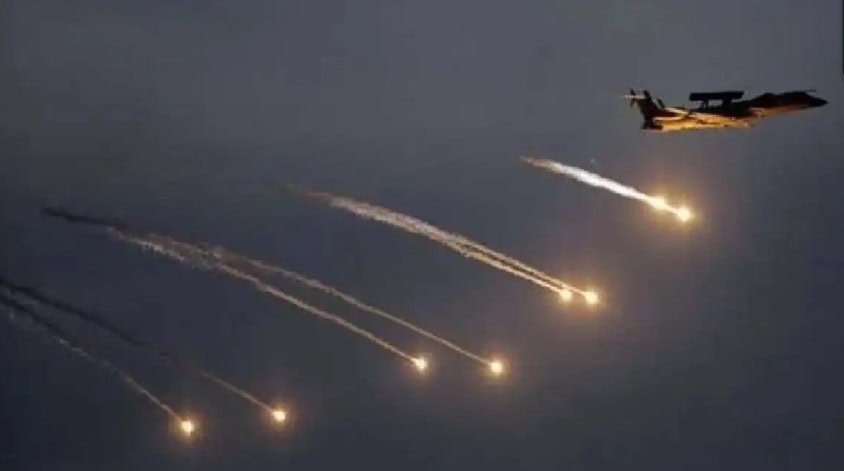In a decisive operation demonstrating precision and resolve, Pakistan has struck a significant blow against Fitna al-Khawarij operating from across its border. Four major spots in Paktika province, Afghanistan – yeah, the ones known for harboring those terrorist camps – have been taken out. It’s actually being celebrated as one of the most effective counterterrorism operations world have seen this year. And this all kicked off around December 23rd to 24th, 2024.
The targeted operation, reportedly resulting in the elimination of around 60 militants, including high-value targets such as Sher Zaman (Mukhlis Yar), Commander Abu Hamza, Akhtar Muhammad (Khalil), and the notorious Umar Media run by Kharji Shoaib Iqbal, marks a turning point in the fight against regional terrorism. The strikes, aimed at dismantling infrastructure used for training suicide bombers and indoctrinating young minds, resonate with a broader message: Pakistan will no longer tolerate threats to its sovereignty and peace.
Precision Without Collateral Damage
One of the most remarkable aspects of this operation was its precision. The strikes were meticulously planned to avoid civilian casualties, focusing solely on terrorist hideouts. Reports indicate that nearby mosques and seminaries were left unharmed, an accomplishment underscoring the operational intelligence and strategic planning of Pakistan’s armed forces.
Videos and audio recordings from the aftermath reveal the chaos within the ranks of the targeted militants (Fitna al-Khawarij). There are desperate cries for help and accusations of betrayal from local populations, indicating the profound psychological and structural impact of the strikes. Satellite imagery of Sher Zaman’s central hub shows a site completely razed to the ground, leaving little doubt about the thoroughness of the operation.
This precision is all the more strikingly remarkable as the area is fraught with political and humanitarian perils. That the operation went ahead without injuring any other innocent bystanders testifies to the professionalism of Pakistan’s military and to its adherence to some norms of conduct in war.
A Resounding Message to the Fitna al-Khawarij
The militants targeted in this operation belong to the Fitna al-Khawarij, a group synonymous with brutality and extremism. Their activities, which include training suicide bombers and indoctrinating children, have inflicted immeasurable harm not only on Pakistan but on the broader region.
Commander Abu Hamza’s demise is particularly symbolic. Known for exploiting vulnerable children and molding them into instruments of terror, his elimination sends a clear message: those who perpetuate such inhumanity will face justice. Similarly, the destruction of Sher Zaman’s suicide bomber training factory, reportedly the largest of its kind, represents a critical blow to the Khawarij’s operational capabilities.
For a nation that has lost 16 brave soldiers in recent confrontations with these Fitna al-Khawarij, this operation serves as a poignant act of retribution. Yet, Pakistan’s resolve extends beyond mere revenge. The commitment to pursue these elements to the farthest corners of Afghanistan signals an enduring fight against extremism.
The Broader Implications
This operation has ramifications beyond Pakistan’s borders. For decades, the area suffered from extremely porous borders, a lack of coordination between neighboring countries, and the use of uncontrolled territories by non-state actors. By undertaking a such a highly focused and effective operation, Pakistan has shown that it can confront these issues. However, the operation also raises questions about Afghanistan’s role in harboring such elements. The presence of terrorist sanctuaries within Afghan territory underscores the need for stronger cross-border collaboration. Pakistan has long called for collective efforts to root out terrorism from the region, and this operation serves as a stark reminder of what can be achieved with decisive action.
The international community, too, must take note. The success of Pakistan’s strike has garnered attention from foreign observers, some of whom have described it as the most significant counterterrorism success against the Khawarij this year. This acknowledgment should prompt greater international support for Pakistan’s efforts, both diplomatically and in terms of resources, to ensure the eradication of such threats.
The Road Ahead
Though the operation is a fairly substantial accomplishment, it sure as operation does not represent the finish line. The battle today against Fitna al-Khawarij is not a sprint but a long-distance run. The Pakistani military’s most senior leadership has promised to track down what remains of these outfits. Such determination needs to be bolstered by a more sustained approach that includes a combination of military, social, and ideological measures to preempt another iteration of extremism. At home, the operation has bolstered national morale. The population in Pakistan, a country that has been ravaged by terrorism for years, sees this achievement as proof of resilience and professionalism of its military. But to build on this success will necessitate vigilance, unity, and even farther resources to be devoted to counterterrorism.
COAS Promises
General Asim Munir has made it pretty clear that Pakistan’s patience has its limits. It’s really up to Afghanistan now—either they get on board with the global fight against terrorism, or they’ll have to deal with what comes next if they keep ignoring the situation. For Pakistan, there’s no ambiguity here: Pakistan won’t allow any safe spots for Fitna al-Khawarij groups. The struggle will go on until there’s peace. Pakistan has already taken necessary steps, and honestly, Pakistan is prepared to do even more if needed. Pakistan’s most recent operation in Paktika is evidence of its determination to secure the region and defend its people.
By eliminating these terrorist facilities selectively and precisely, Pakistan has shown that it will do what is necessary to protect its peace and its sovereignty. As the nation celebrates this success, it must also remain mindful of the challenges ahead. The war against terror is far from over, but with the resolve displayed in this operation, Pakistan has shown it is more than capable of rising to the occasion. Indeed, Pakistan has done the needful—and it will continue to do so until the threat of terrorism is eradicated from its soil and beyond.










